Stories of hope and inspiration amid a crisis
The times we’re in are uncertain, and the constant barrage of news is often dark. With the isolation of quarantine, the bleak financial picture and the struggles for parents who have become full-time teachers and caregivers, the need is great for relief, and for even brief glimpses of hope.
Thanks to the ingenuity and dedication of Alabamians of all ages and backgrounds, such glimpses are all around us, and getting brighter all the time.
Alabama Living wanted to find some of the good things happening amid the COVID-19 pandemic, and to highlight some of the warmth, creativity and goodness that continues to emerge in our state.
If you have a story to share, email Allison Law at [email protected].
Helping to feed children
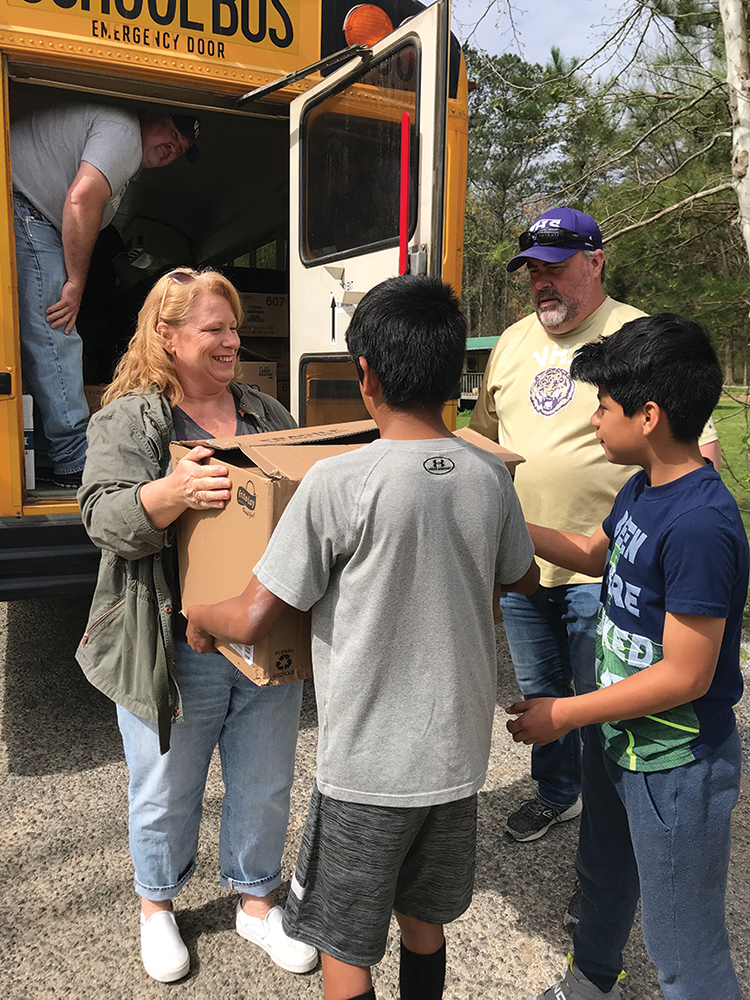
When Alabama schools were ordered closed on March 18, the first question from many parents was, “what will we do about meals?”
School systems handled the situation differently, but many groups – public, private, grassroots, non-profits – stepped in to help.
In DeKalb County in northeast Alabama, a group of teachers and volunteers worked together to pack food for families. The area is large and very rural.
Teachers called their homeroom students to ask who needed meals. Then Tara Kirby, parent and family engagement specialist with the school system, and superintendent Jason Barnett helped implement a plan to pack meals – breakfast, lunch and a snack for five days, per child. The first week, they packed 18,000 grab-and-go meals, and within 45 minutes the food was gone.
“We realized the need was much higher,” Kirby says. So the second week, volunteers and teachers packed 27,000 meals, and within 45 minutes, it was gone again.
“It’s been a huge undertaking,” Kirby says, “but the people that have been contacting me, wanting to help, has been unreal.” Not just teachers, but businesses and community members.
After Gov. Kay Ivey issued a “stay at home” order to begin April 4, many school systems struggled to find ways to continue feeding their students while keeping families as well as volunteers safe. DeKalb County had to suspend its program, but hopes to start again in May.
Mask makers
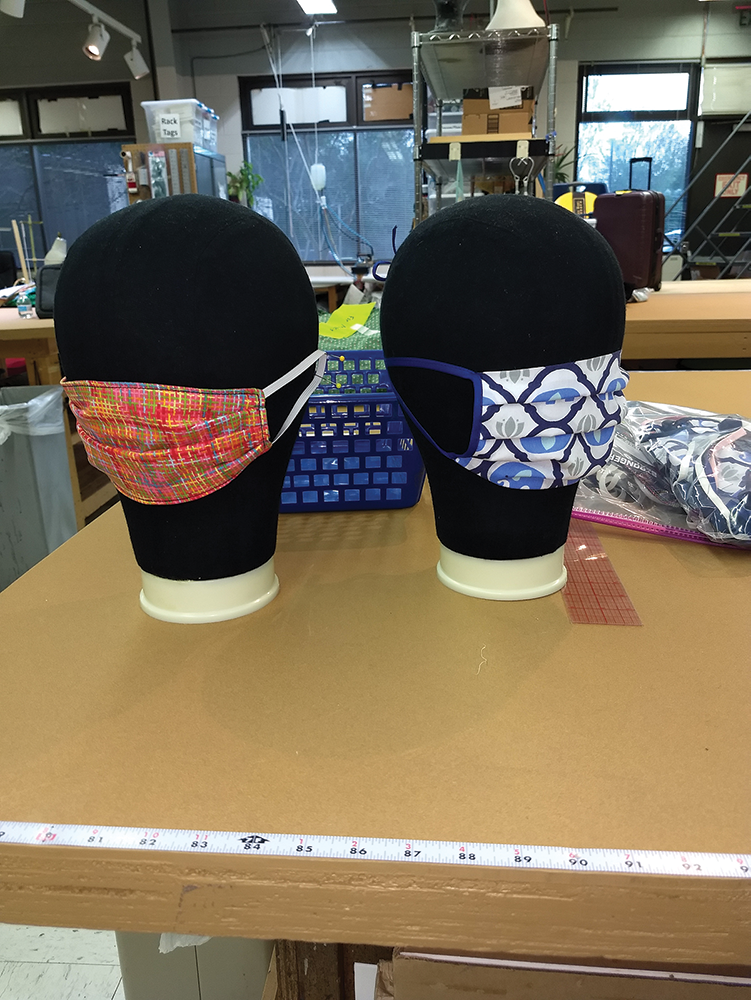
While surgical masks remained in short supply, sewing guilds and home seamstresses took action, using their skills and whatever materials they had at hand to create cloth face masks, which the Centers for Disease Control and Prevention (CDC) recommends for people to wear in public settings where social distancing is difficult.
At the end of March, Red Land Cotton, a member of Joe Wheeler EMC, started making masks for the University of Alabama at Birmingham, as well as for any others who requested them. The company, which makes linens, towels and loungewear made from the cotton from the family farm in Moulton, Alabama, partnered with Alabama wedding dress designer Heidi Elnora to provide fabric, stitching and a team to help in the effort.
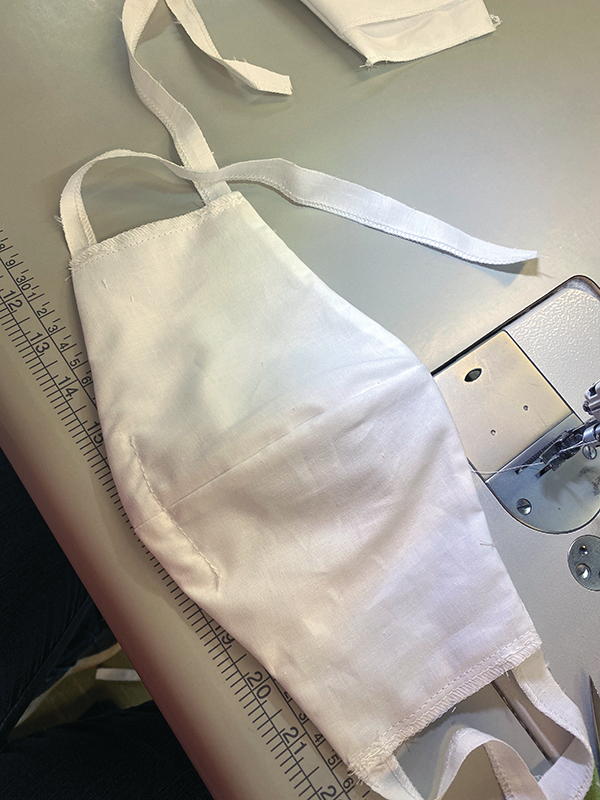
Red Land Cotton donated over 800 yards of fabric to home sewers in the Birmingham area working with Heidi Elnora and Church of the Highlands, and as of early April had sent 1,000 masks to UAB.
And while onstage productions were on hold, the costume department at the Alabama Shakespeare Festival got to work, producing hundreds of simple cloth face masks for Montgomery-area hospitals.
“This is our home,” says Ahkim Church, ASF’s director of production. “We will do anything we can to help our friends and family in Montgomery and in the state to stay safe.”
Church engages youngsters
Churches across Alabama have been embracing new and different ways to keep in touch with their members without gathering in person. First Baptist Church Gulf Shores delivered personalized signs in the yards of its youngest members, and the reaction has been overwhelming for the organizer, children’s minister Cindy Chandler.
“I had been praying about ways I could engage the kids and let them know I was thinking of them,” she says. “I wanted to do something they could visibly see, not just a video.” She found a sign company that could order the signs, and she and her daughter decorated them for each family.
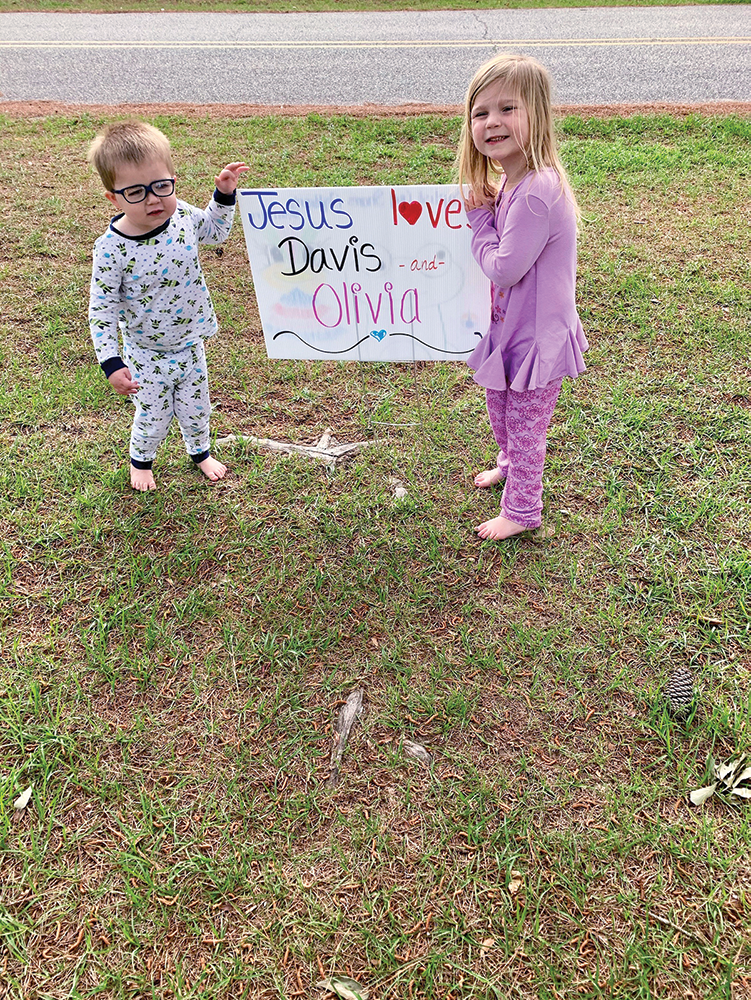
“We made 57 signs to deliver to our families. Honestly, the response floored me. I had no idea I would get the response I have received. I know at least 30 of our families posted a picture of their signs with their kids on Facebook. I was truly blessed.”
The church has also posted Facebook videos of Chandler in different parts of the church, asking children to guess where she is. Student ministry pastor John Yates also has posted devotions and videos to engage older students. See more at facebook.com/FirstBaptistGulfShoresKids.
Tell us what your church is doing to keep in touch these days! Email [email protected].
Teachers reach out
They may have been struggling with how to continue instruction after school closures, but many teachers felt moved to try to brighten the days of their students, even if from afar.
An al.com story that was widely circulated early in the crisis was that of Merideth Lett and Hollie Nelson, who teach at Huntington Place Elementary School in Northport. They drove around Tuscaloosa County delivering “care bags” to all 25 of their fourth-grade students.
The teachers gave each student a recyclable grocery bag filled with math and reading workbooks, writing notebooks and mindfulness lessons, as well as Post-it Notes, highlighters, pencils, crayons, snacks, photos of their fellow students and personal notes from the teachers.
Another idea that caught on quickly through various social media platforms: Teacher parades. Educators and school support staffers dressed up their cars with inspirational signs and drove parade style into their students’ neighborhoods, honking and waving to appreciative families who maintained a safe distance.
‘Ribbons of Hope’
On April 7, Gov. Kay Ivey announced her ‘Ribbons of Hope’ campaign, which encourages the people of Alabama to tie ribbons around a tree or pole in their front yard as a reminder to pray for medical personnel, first responders, and for one another.
Ivey also announced the launch of altogetheralabama.org, a resource to aid in navigating all issues related to the COVID-19 response. Individuals and business owners can seek help and identify state and federal resources.
‘Reading with the Trojans’
Troy University’s Athletics Department has given its radio and TV announcer and its coaches a new role during this time of at-home quarantine. They’ve become online story readers for children. Their “Reading with the Trojans” on social media has been a big hit since it began in March.
Barry McKnight, Troy’s longtime play-by-play announcer, credits his wife, Dee, with the idea.
“I’ve always been a voracious reader, and I always made it a habit to read to my son Jack (who’s grown now) every night I could when he was growing up,” he says. “I’ve read once a week to elementary school classes for about 30 years now. When some of the early COVID-19 cancellations began last month, I told my wife Dee how I’d really hate to miss time reading to the kids, and it was her idea to get some down on video and get them to the school.
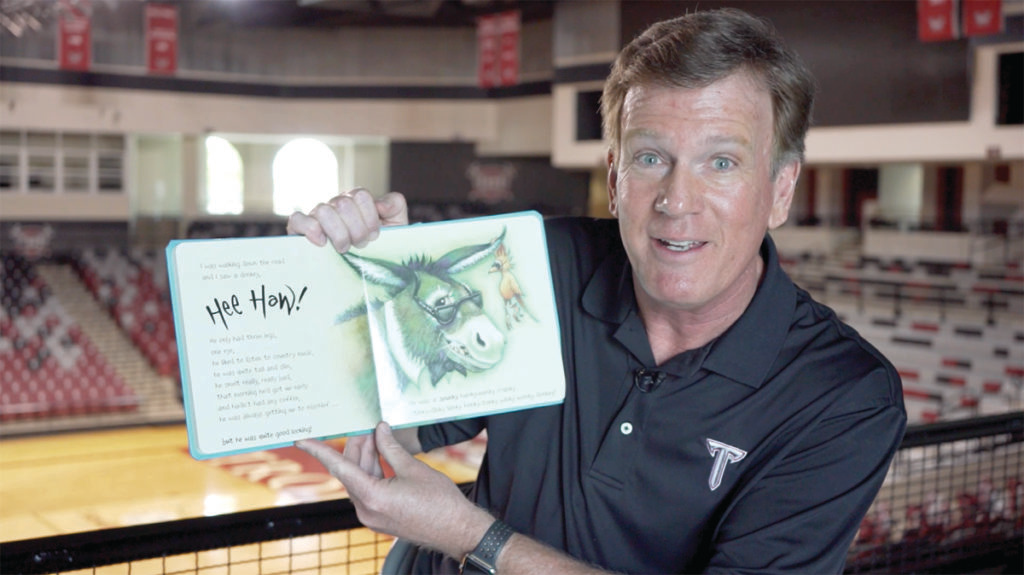
McKnight’s debut book was If You Give a Mouse a Cookie, followed by baseball Coach Mark Smartt reading Caps for Sal. Volleyball Coach Josh Lauer recently read The Legend of Rock, Paper, Scissors, while women’s basketball coach Chanda Rigby read a book she wrote, #OneTroy, about the hashtag used to unify the online Troy community.
McKnight is hopeful the outreach can continue “after the world returns to normal and will involve not only our coaches and staff, but our student-athletes as well, and we’ll be looking for all the suggestions our fans can give us.”
“Reading with the Trojans” is released each Wednesday at 10 a.m. on Troy Athletics Facebook page, Twitter and YouTube. Episodes are archived at troytrojans.com.




